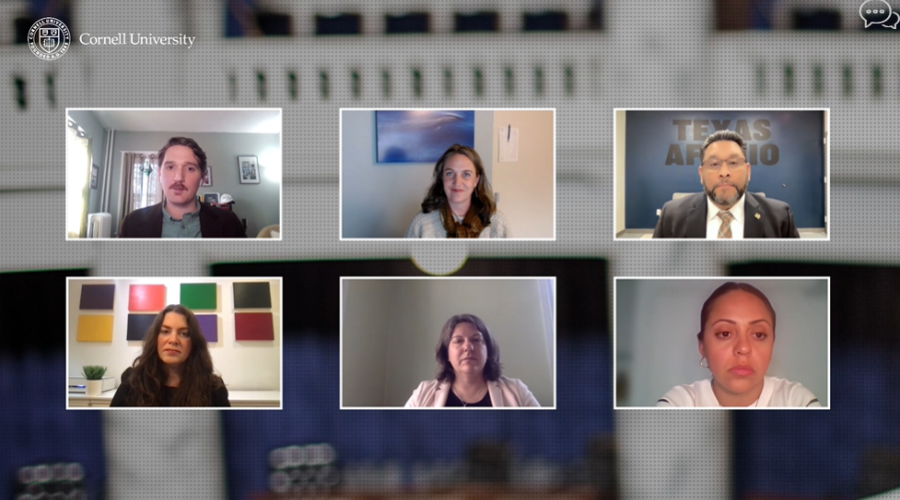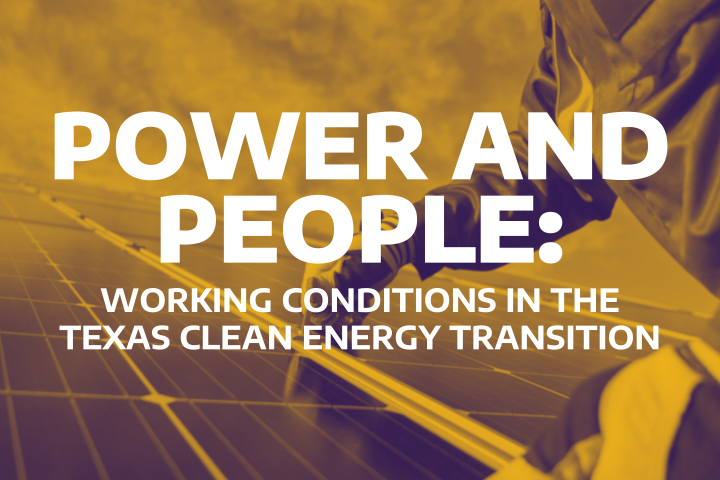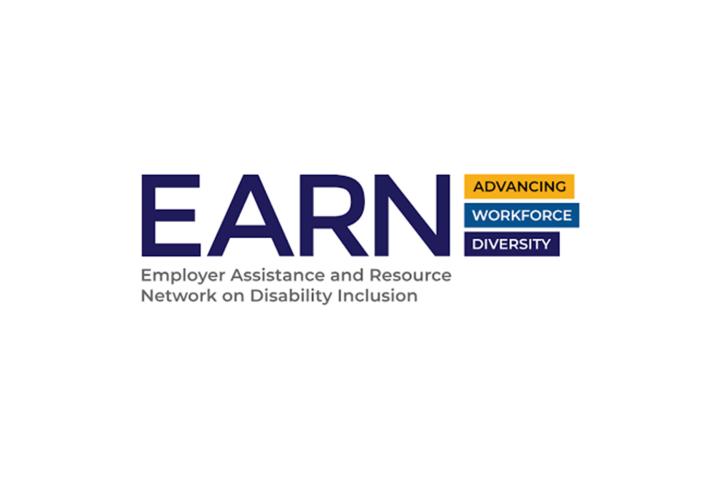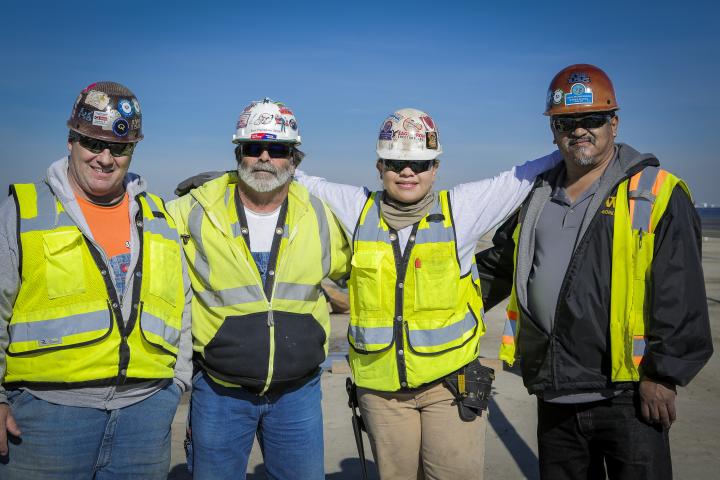
Climate Jobs Institute Hosts Panel on Inflation Reduction Act and Workforce Development
On January 11, the Cornell ILR Climate Jobs Institute (CJI) hosted a panel exploring key climate, labor, and workforce development provisions of the federal Inflation Reduction Act (IRA). The panel, hosted by eCornell, was CJI’s first public event before its formal launch on January 25. Over 400 people watched live, with many more registering to receive the video following the event.
CJI Training & Education Associate Zach Cunningham moderated the panel, which brought together experts from federal and state governments, the labor movement, and workforce development programs. Betony Jones, Director of Energy Jobs at the US Department of Energy, started the program by outlining key labor and climate provisions of the IRA. Jones described why it is important to focus on job growth and job quality as we build the clean energy economy, and she outlined various measures the federal government is taking to that end.
After Jones spoke, Cunningham then asked questions of four distinguished panelists. First, Teresa Acuña, the Deputy Director of the Good Jobs Initiative at the US Department of Labor, built off of Jones’s remarks, highlighting the need for key constituents - like labor, communities, and different government agencies - to partner together in the coming years to ensure successful implementation. Rhode Island Senator Dawn Euer and Texas AFL-CIO Secretary-Treasurer Leonard Aguilar also spoke about implementation opportunities and challenges in their states.
Next, the panel turned to the Act's workforce development provisions. Aguilar described registered apprenticeships for the audience, drawing on his experience as a member of the Plumbers & Pipefitters union who completed an apprenticeship program. The IRA requires that projects seeking to receive the most generous federal funds pay prevailing wages and utilize well-trained apprentices on the job. Kathleen Culhane, President of Nontraditional Employment for Women in New York City, then described “pre-apprenticeship” or “apprenticeship readiness” programs, which are crucial in providing a diverse pipeline of workers into registered apprenticeships and careers in the construction industry. The audience also viewed a pre-recorded video from Anthony Cooper, a member of Laborers Local 79 who graduated from the Pathways 2 Apprenticeship pre-apprenticeship program in New York City.
During this portion of the discussion, Acuña and Culhane described the importance of “wrap-around services” in workforce development. For example, a lack of affordable and convenient child care often impedes more women from entering the trades. Senator Euer also built off of earlier comments from Aguilar, emphasizing the importance of apprenticeship in giving participants a broad set of skills that can transfer from job to job.
CJI hopes to be a resource for people looking to leverage state and federal funds to build a diverse, equitable, robust clean energy economy. The CJI team looks forward to continuing this conversation at the Institute’s launch event on January 25.



